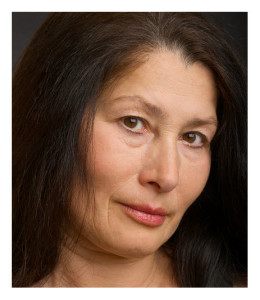I have been accused of being overly sensitive to criticism, overly sentimental, and much too concerned with other people’s feelings. In other words, I am “too” sensitive, and I suffer from empathy on steroids.
 I plead guilty to the first (in my personal life), guilty to the second (faced with a tear-jerker on screen or in print), and guilty to the third – with no qualifications whatsoever. I am empathetic to a fault, and at times, this tendency is a problem.
I plead guilty to the first (in my personal life), guilty to the second (faced with a tear-jerker on screen or in print), and guilty to the third – with no qualifications whatsoever. I am empathetic to a fault, and at times, this tendency is a problem.
I have read with interest the many articles appearing on “Highly Sensitive People” or HSPs. In particular, the facet of relationship pairings in which HSPs align themselves with the charismatic but obtuse, some of whom may be narcissists.
Many may be blessed with a very healthy ego, but let’s remember not to automatically toss them into the narcissism bucket, however popular it may be to do precisely that.
The Highly Sensitive Person: Challenges
Naturally, we worry about the vulnerabilities of those who are at the far end of the sensitivity spectrum. It’s more difficult to acquire the thick skin that allows us to take criticism, to cease shouldering the blame for everything that goes wrong around us, to maintain boundaries when confronted with the problems of others that affect us deeply and may pose obstacles to our own functioning.
Might some of these traits slide into the tendencies of those who are insecure, or conditioned to assign fault to oneself?
I would say yes, but we should recognize the distinctions at play here. The highly sensitive person, by definition, is hyper-attuned to sensual and emotional stimuli, and potentially more prone to anxiety and stress as explained by Dr. Elaine Aron, author of “The Highly Sensitive Person”.
Advantages of the Highly Sensitive Person (HSP)
We don’t always consider the many gifts of being highly sensitive, as expressed in this article at Psych Central, which notes:
… people are not simply “sensitive” or “not sensitive” — like other qualities and traits, it’s a matter of degree…
The writer goes on to cite several of the HSP’s gifts including a rich appreciation and awareness of sensual detail in all its nuance, and extreme empathy. Bringing these qualities to both activities and experience, this heightened awareness may well explain the number of creative individuals who may be considered more “sensitive” than others.
Chicken or the egg? Hard to say.
When it comes to emotional issues, the highly sensitive person may be walking a fine line in his or her relationships.
Emotional Overwhelm
Referring to “emotional overwhelm,” Psych Central points out:
Taking in and processing so much information from both inner and outer worlds can be “too much” at times and result in more pain, fatigue, stress, anxiety and other reactions.
I can certainly relate, or should I say… empathize. I know my own limits in the affective arena; there are topics I literally cannot physically bear to discuss and likewise, the suffering of certain types of others that leaves me feeling stricken. This makes me what some would term a “soft touch” and may well explain the pairing of HSPs with those would take them for a ride.
However, a significant degree of empathy can be an advantage, in particular, it can be:
… a powerful asset for teachers, managers, therapists and others.
I might add that it comes in very handy when dealing with children, and quite possibly, in situations where you are resolving conflict, for example mediating between adversarial parties.
I find myself wondering how we could reframe this double-edged sword rather than simply falling into “overwhelm.” What if we considered this high sensitivity trait to be exceptional emotional capacity that we can put to work for ourselves and others – if we can learn to manage it?
Withdrawal to Regroup
One surprising aspect of my research on highly sensitive people is this:
We may need to “retreat” and emotionally “refresh” ourselves at times that are not always best for our goals or personal growth.
 I have always considered myself sensitive, though not “highly” sensitive. (The more I research, the more I think I’m wrong on that score.) Still, I clearly see my craving for physical and emotional space – it is truly a need, not a want – and it is often misunderstood or taken as a personal affront. I have had moments when I’ve asked myself if this is emotional detachment or unavailability, and perhaps there is an element of that at play as well.
I have always considered myself sensitive, though not “highly” sensitive. (The more I research, the more I think I’m wrong on that score.) Still, I clearly see my craving for physical and emotional space – it is truly a need, not a want – and it is often misunderstood or taken as a personal affront. I have had moments when I’ve asked myself if this is emotional detachment or unavailability, and perhaps there is an element of that at play as well.
That said, I suspect my need for alone time is, as explained in the Psych Central article, the natural requirement that follows the drain that comes from social interaction. And I will add, this isn’t a surprise for someone who is — perhaps to your surprise — more introvert than extrovert.
Acutely Aware of Beauty
Dr. Judith Orloff writes about highly sensitive people and notes that they are subject to a “constant flow of sensory data.” She also elaborates on their ability to appreciate beauty that others may pass by. She describes what may be a typical experience for the HSP, and writes:
… on a walk through her neighborhood… she zeroes in on the one budded leaf that hasn’t unfurled; it brings a lump to her throat… an abandoned nest half-hidden in the treetops fills her with awe… At its best, [sensitivity] is a gift, a fine-tuned finger on the pulse of every flutter of their surroundings.
While sensitivity may leave us vulnerable to slights that others do not notice, we are also soaking up a potentially glittering set of experiences. Beauty, in so many forms.
Considerations
 Some estimate that 20% of people are “highly sensitive.” A significant portion may also be introverts. Note that it isn’t only women who are highly sensitive, though there is less stigma for women to express their sensitivity or sentimentality than men.
Some estimate that 20% of people are “highly sensitive.” A significant portion may also be introverts. Note that it isn’t only women who are highly sensitive, though there is less stigma for women to express their sensitivity or sentimentality than men.
Speaking for myself, I recognize all the signs of being an HSP, yet I also see how I have managed to grow a somewhat harder shell as a matter of survival, in particular, professionally.
On a personal level?
Less so.
Among many considerations for those who are highly sensitive, and those with loved ones who are highly sensitive, is finding a place of mutual understanding.
We shouldn’t take it personally when the HSP retreats to refill the emotional well. We might well encourage a thicker skin (without lecturing), though this may be the work of a lifetime for some of us. We could recognize the true gift of sensitivity for the musician, the writer, the painter, the performer, the teacher, the therapist, the mediator – and acknowledge that through his or her art and skillful communication, not only are the rest of us the recipients of a wondrous store of sensory pleasures, enlightened perspectives and genuine compassion, but our eyes may be opened to what it is like to care so deeply or, differently.
Loving a Highly Sensitive Person
Let’s also remember that it can’t be easy to accommodate the hyper-sensitivity of one who broods over small slights; who responds to teasing by appearing to overreact; who feels profoundly, passionately, fearfully, tearfully – at times physically – a breadth of experiences that others may scarcely be aware of.
Might it be like trying to explain a color of the rainbow that your best friend cannot see? Or the many notes in a fragrance that she cannot perceive? Can we still keep in mind that this label, like others, is not a stereotyping tool but rather a guide, a spectrum, a useful set of insights to facilitate greater understanding?
Perhaps there is a lesson in this for all of us. If we took on more of the pain as well as the joy of others, if we all sought to be more empathetic, we might resolve conflict more readily, and accept one another with greater kindness. But perhaps that is my sensitivity talking, hand-in-hand with the lingering idealism of youth.
You May Also Enjoy
I often tell my students that the highly sensitive, empathetic people are the most creative and produce amazing work. I believe this is one of the reasons you are such a great writer… don’t strive to change too much… empathy is a gift and helps us to write in such a way as to bring understanding!
I am definitely a HSP and it runs through my family genetics. My dad is an HSP and two of my children are as well. ( pass the valium and meditation guide please!)
High Sensitivity is certainly beneficial for my writing and my Divorce Guidance for Women Biz.
However, as you share in this article, I’ve spent many years trying everything and then some to meet and exceed the unreasonable expectations of emotionally abusive narcissists that included my husband, landlords and several bosses.
After years of therapy to figure out why I stayed far too long trying to please these types,
I finally believe in myself and say NO WAY to trying to be perfect.
You know Nancy Kay, I am a HUGE fan of “nice guys” – and I actually believe they can finish “first” despite the saying to the contrary. But I think it takes us, women who too easily buy into a certain image of a man, to be able to see our needs clearly and learn to wean ourselves off the bad boys, the narcissistic charmers, and those who take advantage of our need to be helpful.
It can take years, but we can do it. And life looks a lot better when we do. (And those “nice guys” are pretty fabulous.) 🙂